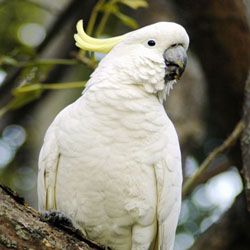 Time spent outdoors can be a very mentally, physically and instinctually stimulating experience for your bird. For optimal safety, this should occur while in an outdoor cage or aviary.
Time spent outdoors can be a very mentally, physically and instinctually stimulating experience for your bird. For optimal safety, this should occur while in an outdoor cage or aviary.
Your bird will enjoy the opportunity to experience the fresh air breezes as well as the many sights and sounds as well as benefit from the exposure to natural sunlight which is known to:
- Stimulate the production of Vitamin D which is essential in activating the absorption of calcium which is necessary for bone and physical development.
- Promote skin health and feather quality.
- Stimulate breeding activity.
- Strengthen the immune system.
- Improve mental disposition.
- Increase playfulness and activity levels.
- Invigorate appetite.
Outdoor play time also exposes your bird to a multitude of new dangers that must be avoided.
- Dogs, cats, kids can easily knock over a cage or open unlocked cage doors resulting in the demise or setting free of your parrot companion.
- Snakes, rats, and field mice can crawl into the cage trapping your bird.
- Hawks and other raptors (falcons, owls) are everywhere and can easily swoop down and steal a loose bird or severely injure a caged bird.
- West Nile virus, which is spread by mosquitoes, is a concern in many parts of the country.
- If allowed to remain outside a cage, your bird can quickly drown in a pond, bucket of water or a water fountain.
- Heat Stroke
- Your parrot companion may also fly into fire pits, open barbeque grills, or directly into traffic.
To make sure you bird is safe while outdoors:
- Be sure that their wings are clipped. Even a clipped bird with the correct wind can take off in a flash.
- Never leave your bird outside unsupervised.
- Keep your bird safely inside a cage or under your control while wearing a flight suit/harness.
- Keep animals and wild birds away from your bird's cage.
- Make sure your bird's cage is securely locked.
- Provide your bird with access to shade and plenty of fresh water throughout the day to prevent heat stroke. Misting your bird will also keep him cool. Be alert for the signs of heat exhaustion.
- If you let your bird sit in a branch or in the grass make sure that they have not be sprayed with any chemicals. Plant pesticides and fungicides, insect pesticides, and lawn fertilizers are all toxic to your bird.
- Don't allow your bird to bathe in a wild bird bath to prevent disease.
- Don't place your bird's cage next to the outdoor grill or fireplace as the smoke will irritate your bird's very sensitive lungs.
- Due to the risk of West Nile virus, don't take your birds outside during peak mosquito hours (early morning and evening) and do not allow standing water, where mosquitoes lay their eggs, to accumulate on your property.
- Do not use insect repellents near your bird.
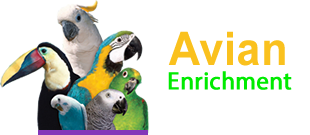














































































































































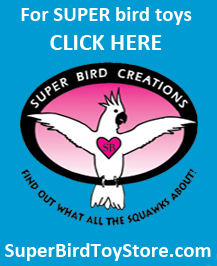
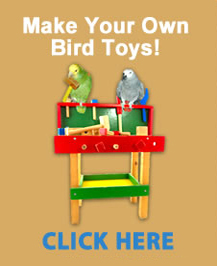
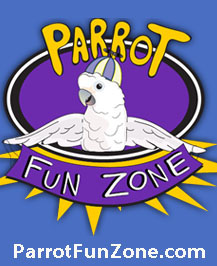

Comments powered by CComment